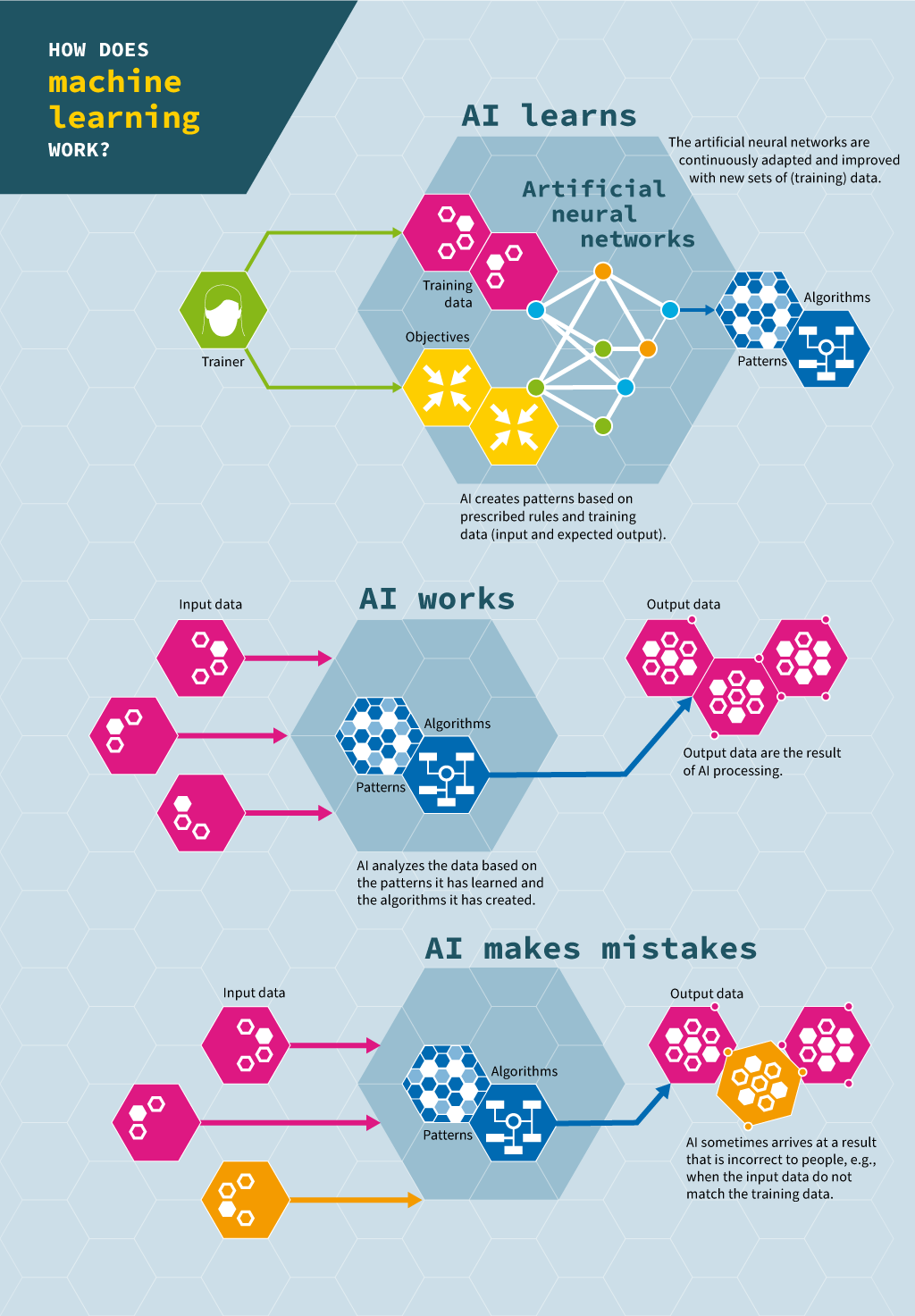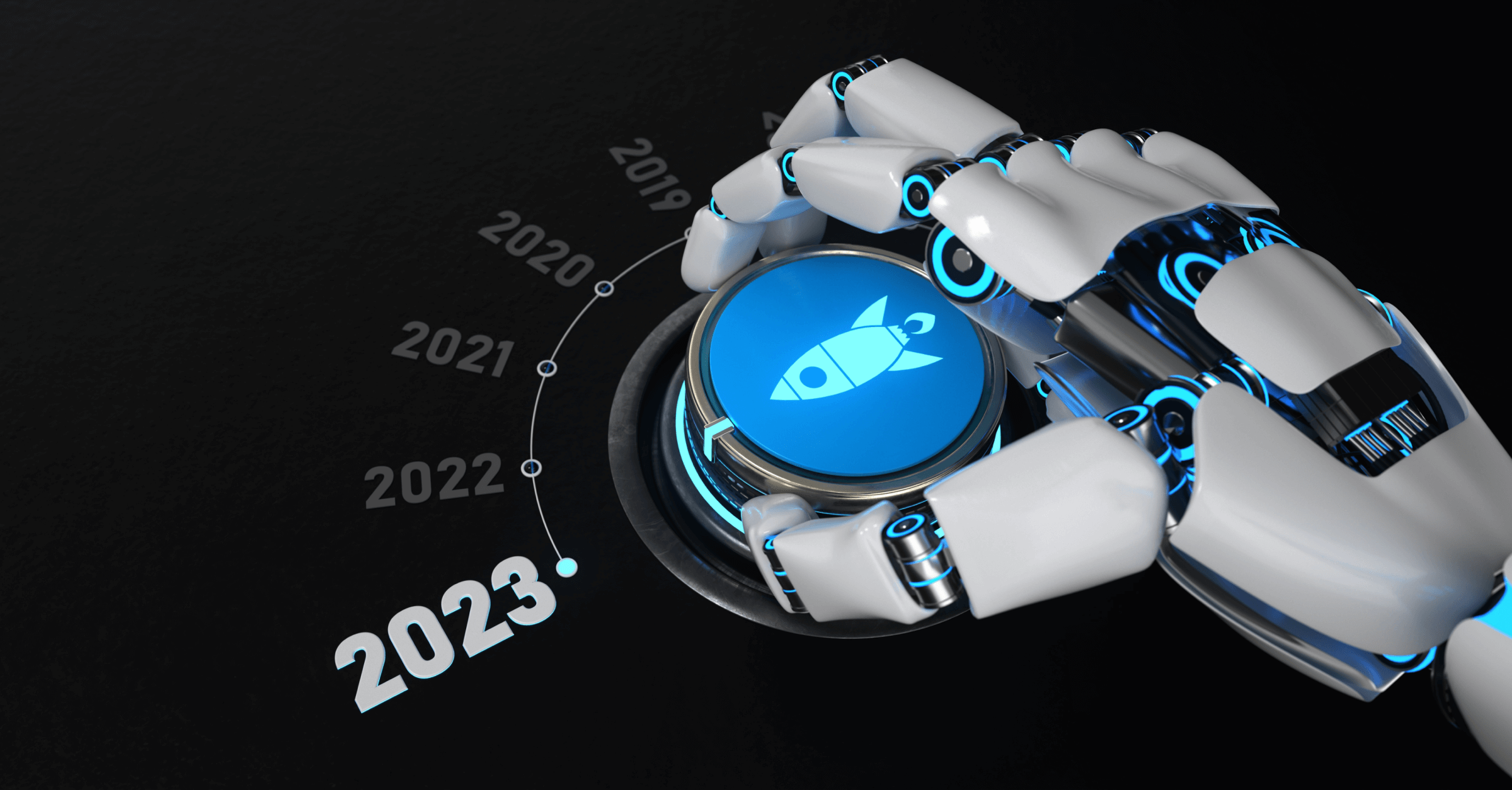By Arminé Saghatelyan, BI Analyst at Sphere Partners
As we examine AI trends in 2023, one far-reaching conclusion stands alone: Artificial intelligence technologies are revolutionizing the way we live and work. With the ability to process and analyze vast amounts of data quickly and accurately, AI is being used in a variety of business industries to improve efficiency and drive innovation.
One of the key drivers of the AI revolution is the explosion of AI data solutions. As more and more devices and sensors are connected to the internet, the amount of data being generated is growing at an unprecedented rate. This data is incredibly valuable, as it can be used to train AI algorithms and improve their performance.
One company that is at the forefront of artificial intelligence in 2023 and moving forward is Sphere Partners. The team at Sphere Partners is highly skilled in working with data and using AI technologies to solve complex problems. Working within the framework of the current state of AI, they are helping businesses in a wide range of industries, from finance and healthcare to retail and transportation, to unlock the full potential of their data and drive growth and success.
In the coming years, we can expect to see even more exciting developments in the world of AI. As technology continues to advance, it will be used in new and innovative ways to improve our lives and transform industries. With companies like Sphere Partners leading the way, the future of AI is bright indeed.
What is AI & How Does it Work?
AI, or artificial intelligence, refers to the ability of a computer or machine to perform tasks that would typically require human intelligence, such as learning, problem-solving, and decision-making. This can include tasks like recognizing patterns in data, understanding and responding to natural language, and making predictions based on past events.
AI systems are typically designed using a combination of machine learning algorithms and data. Machine learning algorithms are used to identify patterns in data, and then use those patterns to make predictions or take actions. The more data an AI system has, the better it can learn and perform these tasks.
AI is becoming increasingly popular and important in today’s world because it has the potential to revolutionize many industries, from healthcare and finance to transportation and retail. It can help businesses make better decisions, improve efficiency and productivity, and even create entirely new products and services.
As for the dangers of AI, there are certainly some concerns that need to be addressed. For example, if AI systems are not designed and implemented correctly, they can potentially make mistakes or even act in harmful ways. Additionally, there are concerns about the potential loss of jobs as AI systems become more advanced and capable of performing tasks that were previously done by humans.
However, the benefits of AI are likely to outweigh the risks, as long as we take the necessary precautions and continue to develop and improve AI technology in a responsible manner. Our team of professionals is committed to exploring the potential of AI and helping to drive innovation in this exciting and rapidly-evolving field.
As mentioned earlier, AI systems are typically designed using a combination of machine learning algorithms and data. Machine learning algorithms are used to identify patterns in data, and then use those patterns to make predictions or take actions. The more data an AI system has, the better it can learn and perform its tasks.
For example, let’s say an AI system is being trained to recognize objects in images. The first step would be to feed the system a large dataset of images that have been labeled with the objects they contain. The AI system would then use machine learning algorithms to identify the patterns in this data that are associated with different objects.
Once the AI system has learned these patterns, it can then be tested on new images that it hasn’t seen before. If it has learned well, it should be able to accurately identify the objects in these new images.
This is just one simple example of how AI works, but the basic principles are the same across different applications of AI. By using machine learning algorithms and large datasets, AI systems can learn to perform a wide range of tasks that would be difficult or impossible for humans to do.

Image source: https://medienportal.siemens-stiftung.org/en/artificial-intelligence-how-does-machine-learning-work-112799
The Different Fields of AI
There are many different fields within the broader field of AI, and each one focuses on a specific area of research or application. Some of the most popular fields of AI include:
-
Machine learning AI:
Machine learning is a subfield of AI that focuses on the development of algorithms and statistical models that can allow a computer or machine to learn from data, without being explicitly programmed. This is often used to improve the performance of AI systems over time, as they are able to learn from their experiences and adapt to new situations.
-
Deep learning AI:
Deep learning is a type of machine learning that uses artificial neural networks to learn from data in a hierarchical manner, with each layer of the network learning from the previous layer. This allows deep learning systems to learn complex patterns in data and make more accurate predictions than other types of machine learning algorithms.
-
Natural language processing AI:
Natural language processing (NLP) is a subfield of AI that focuses on the ability of computers and machines to understand, interpret, and generate human language. This can include tasks like language translation, sentiment analysis, and text summarization.
-
Computer vision AI:
Computer vision is a subfield of AI that focuses on the development of algorithms and systems that can interpret and understand visual data, such as images and videos. This can include tasks like object recognition, facial recognition, and scene understanding.
-
Robotics AI:
Robotics is a field of AI that focuses on the development of intelligent robots and systems that can interact with the physical world. This can include tasks like navigation, manipulation, and perception.
These are just a few examples of the many different fields within AI, and there are many others that focus on different areas of research and application. In general, however, the key difference between these fields is the specific type of problem they are trying to solve or the specific type of data they are working with.
Most Powerful AI Systems (So Far)
It’s difficult to say which AI systems have been the most successful, as success can be measured in many different ways. Some AI systems may be considered successful if they are able to perform a specific task very well, while others may be considered successful if they are able to learn and adapt to new situations.
One AI system that has received a lot of attention recently is GPT-4, which is a natural language processing AI developed by OpenAI that is most notably integrated into ChatGPT. GPT-4 is one of the largest and most powerful language AI models ever created, and it is capable of generating human-like text on a wide range of topics.
Another popular AI system is AlphaGo, which is a computer program developed by Google DeepMind that was able to beat the world’s top human players at the game of Go. This was considered a major milestone in the field of AI, as Go is considered a much more complex game than games like chess, which had already been mastered by AI systems.
OpenAI is a research institute and company focused on developing AI technologies and applications. They are known for their work on GPT-4 and other AI systems, and they are considered one of the leaders in the field of AI research and development.
Overall, there have been many successful AI systems developed over the years, and the field of AI is constantly evolving and improving. As AI technology continues to advance, we can expect to see even more impressive AI systems in the future.
Optimize Your Business with ChatGPT Consulting
Predicting the Future of AI
The future of AI is difficult to predict with certainty, as it will depend on many factors, including advances in technology, changes in society, and the choices made by researchers and policymakers. However, it is likely that AI will continue to play an increasingly important role in our lives and in many different industries.
One potential future for AI is that it will become more integrated into our daily lives, with AI systems being used for a wide range of tasks and applications. For example, AI could be used to improve healthcare by providing more personalized treatment options, or it could be used to improve transportation by developing intelligent traffic systems.
Another potential future for AI is that it will continue to advance and become more intelligent and capable. This could include the development of AI systems that are able to learn and adapt more quickly, or the creation of AI systems that are able to understand and interact with the world in more natural and human-like ways.
The future of AI is likely to be both exciting and challenging. As AI technology continues to evolve, it will be important for researchers, policymakers, and society as a whole to carefully consider the potential implications and ensure that AI is developed and used in a responsible and ethical manner.
AI in Art
It is possible that AI systems could be developed that are capable of creating art that is considered to be of high quality. However, whether or not AI-generated art is considered “better” than art created by humans is a subjective matter, and opinions on this topic are likely to vary.
Some people may appreciate the unique perspective and creativity that AI can bring to art, while others may feel that art created by humans is inherently superior. Ultimately, whether or not people are angry about AI-generated art will depend on their individual beliefs and values.
One thing to keep in mind is that AI is not intended to replace human artists, but rather to enhance and augment their abilities. AI can be used to help artists generate ideas, create new artworks, or even assist in the physical creation of art. By working together, humans and AI can create art that is truly unique and innovative.
There have been several AI systems developed that are capable of creating music or painting pictures. These systems typically use machine learning algorithms and large datasets to learn about the structure and characteristics of music or art, and then use this knowledge to generate their own creations.
One example of an AI system that can create music is Amper Music, which uses machine learning algorithms to generate original music in a wide range of styles and genres. Amper allows users to input certain parameters, such as the desired length, tempo, and style of the music, and then generates a unique composition based on these inputs.
Another example of an AI system that can create art is Deep Dream, which was developed by Google. Deep Dream uses a type of machine learning called deep learning to generate surreal, abstract images that are based on the patterns it has learned from a large dataset of images.
Overall, AI systems that can create music or art are a fascinating example of the potential of AI to generate new and creative ideas. While these AI systems are not yet able to fully replicate the creativity and uniqueness of human artists, they are a promising step in that direction.
Industries Where AI Data Solutions Can Be Especially Helpful
There are many industries where AI data solutions can be very helpful, and the specific applications of AI will vary depending on the industry and the specific challenges it faces. Some industries where AI is already being used include healthcare, finance, transportation, and retail.
In the healthcare industry, AI can be used to help doctors diagnose diseases, identify potential treatments, and even assist in surgery. For example, AI systems can be used to analyze medical images, such as X-rays or MRIs, to identify abnormalities or diseases. Additionally, AI can be used to analyze large amounts of medical data to identify patterns and trends that can help doctors make more accurate diagnoses.
In the finance industry, AI can be used to help banks and other financial institutions make better investment decisions, prevent fraud, and improve customer service. For example, AI systems can be used to analyze market data and make predictions about the performance of stocks and other assets. Additionally, AI can be used to monitor financial transactions and identify potential instances of fraud.
In the transportation industry, AI can be used to improve traffic management, assist in self-driving cars, and even help plan and optimize transportation networks. For example, AI systems can be used to analyze traffic data and identify patterns that can help traffic flow more smoothly, or to assist self-driving cars in navigating roads and avoiding obstacles.
There are many different industries where AI can be very helpful, and the potential applications of AI are vast and varied. As for the question of whether AI can prevent wars, it is difficult to say for certain. While AI could potentially be used to help prevent conflicts or mitigate the effects of wars, ultimately the decision to go to war is a complex one that involves many different factors. It is unlikely that AI alone could be used to prevent wars.
Who can become an AI engineer?
Anyone with the right skills and knowledge can become an AI engineer. AI engineering is a highly interdisciplinary field, and it typically requires expertise in areas such as computer science, mathematics, and machine learning.
To become an AI engineer, you will typically need to have a strong foundation in computer science and mathematics, including skills in areas such as algorithms, data structures, and statistics. Additionally, you will need to have experience with programming languages and tools commonly used in AI, such as Python, TensorFlow, and Keras.
In addition to these technical skills, AI engineering also requires strong problem-solving and critical thinking skills, as well as the ability to think abstractly and understand complex systems. To develop these skills, you may want to consider pursuing a degree in computer science or a related field, or taking courses and workshops in AI and machine learning.
Becoming an AI engineer is a challenging but rewarding endeavor, and it can open up many exciting career opportunities in the rapidly-growing field of AI. If you are interested in AI and have the necessary skills and knowledge, you may want to consider pursuing a career as an AI engineer.
Interesting Facts About AI In Its Current Form
- AI systems can learn and adapt over time. Unlike traditional computer programs, which are designed to perform specific tasks and cannot change or improve, AI systems are designed to learn from data and experience, and they can adapt and improve their performance over time.
- AI is being used in many different industries. AI is not just a futuristic technology – it is already being used in many different industries, from healthcare and finance to transportation and retail.
- AI has the potential to revolutionize many aspects of our lives. From self-driving cars and personalized medicine to intelligent assistants and smart homes, AI has the potential to fundamentally change the way we live and work.
- AI systems can be biased. Like humans, AI systems can be biased based on the data they are trained on, and this can lead to unfair or inaccurate results. As a result, it is important to carefully consider the sources of data used to train AI systems, and to take steps to prevent bias.
- The field of AI is rapidly evolving. AI technology is constantly improving, and new developments are being made all the time. As a result, the field of AI is extremely dynamic and exciting, and there are many exciting opportunities for researchers and professionals to explore and contribute to the field.
The Dangers of AI
One of the worst-case scenarios for AI is that it could be used in ways that are harmful to society or to individuals. For example, AI could be used to create weapons that are able to make decisions and take actions without human oversight, leading to devastating consequences. Additionally, AI could be used to spread false information or manipulate people, leading to social instability and mistrust.
Another potential worst-case scenario for AI is that it could lead to widespread job displacement. As AI systems become more advanced and capable of performing tasks that were previously done by humans, there is a risk that many people could lose their jobs to automation. This could lead to social and economic disruption, and it would be important for society to adapt and find ways to support those who are affected by job displacement.
The Positive Possibilities of AI
It is important to carefully consider the potential risks and negative impacts of AI, and to take steps to ensure that AI is developed and used in a responsible and ethical manner. This can include things like developing guidelines and regulations for the use of AI, and conducting research to understand the potential consequences of AI technologies. By being proactive and thoughtful, we can help to ensure that the potential negative impacts of AI are minimized.
Have a project that requires AI expertise? We have experienced AI architects, engineers and data analysts that deeply understand complex systems, algorithms, and the current state of AI. Our experienced team can help you reach the goals you want to achieve with AI. Reach out to Sphere Partners today to get started.
Explore Expert AI Data Solutions





